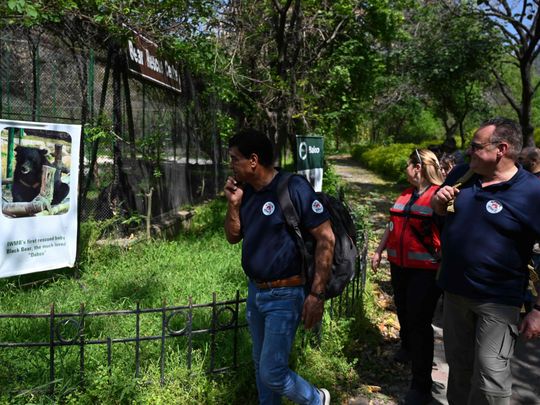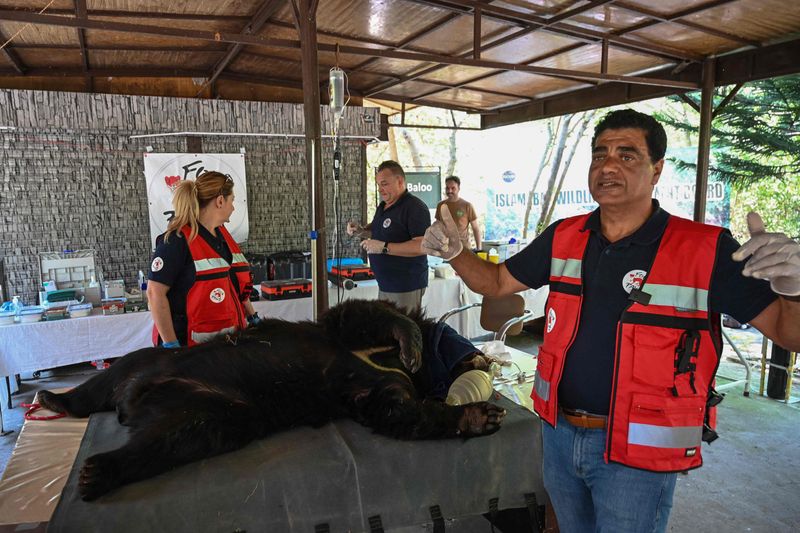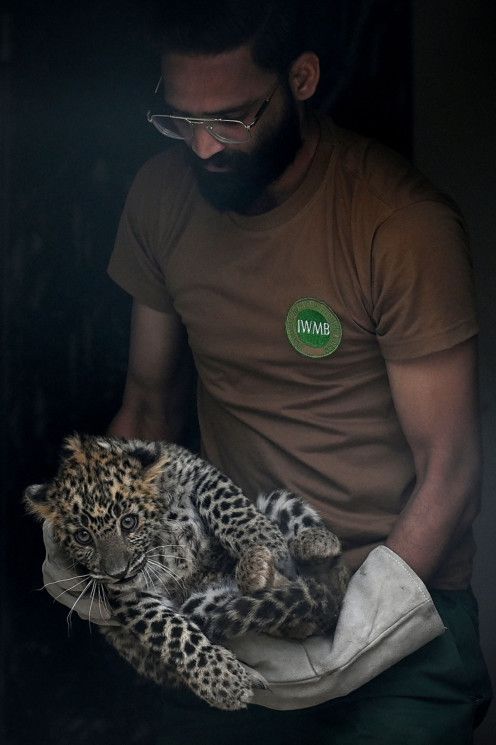
Before it was forced to close over its “intolerable” treatment of animals, the Islamabad Zoo was home to neglected elephants and underfed lions pacing back and forth behind the bars of their enclosures. Now, four years later, it is providing a refuge for motherless leopard cubs, tigers seized from owners who kept them as status symbols, and bears forced to dance – or fight – for the amusement of crowds.
The zoo found international notoriety in 2016, when the singer Cher launched a campaign to remove its shackled Asian elephant Kaavan, dubbed the world’s loneliest elephant. But Kaavan’s treatment wasn’t an isolated incident – two lions died at the facility when zookeepers attempted to force them from their pen by setting fire to piles of hay. And over the years, hundreds of animals listed on the zoo’s inventory simply vanished.
Now it is sort of a rehabilitation center with over 50 animals.
Recently two indigenous leopard cubs poached from their mother were brought here, along with bears once forced to fight dogs in underground competitions and monkeys made to dance for tips.
Amir Khalil, a veterinarian who directs the global animal welfare organisation Four Paws, and vets from the Austria-based NGO had come to the center to see after three black bears whose claws had been removed by their previous owners, treating them in the shadow of an abandoned Ferris wheel in the zoo’s former cafe – now a makeshift clinic.


Owning a wild cat is a symbol of wealth in Pakistan even though it is illegal in some parts of the country. “We think animals are toys,” said Ali Sakhawat, deputy director of research and planning at the Wildlife Board said. The animals brought to the centre are not only physically injured but also mentally traumatised. “We keep them occupied to help them erase the memories of the trauma inflicted by poachers,” he said while playing with Daboo, one of the rescued black bears. “The bears you’ve observed here exhibit signs of joy – roaming freely, climbing trees – a stark contrast to the captivity that deprived them of happiness,” he added.
Wildlife authorities are pushing for new laws targeting poachers and bear baiters who regularly trap and traffic wild animals. A new Islamabad Nature and Wildlife Management Act has been passed but is lost in government’s files and requires President’s signature.
“No one in the government listens, I have gotten old trying to make them understand how important this is,” Safwan Ahmad, vice chairman of the non-profit Pakistan Wildlife Foundation, said.
“No matter how many zoos we make for kids, this won’t teach them that animals are to be taken care of,” said Sakhawat while opposing of a new zoo in Islamabad.
